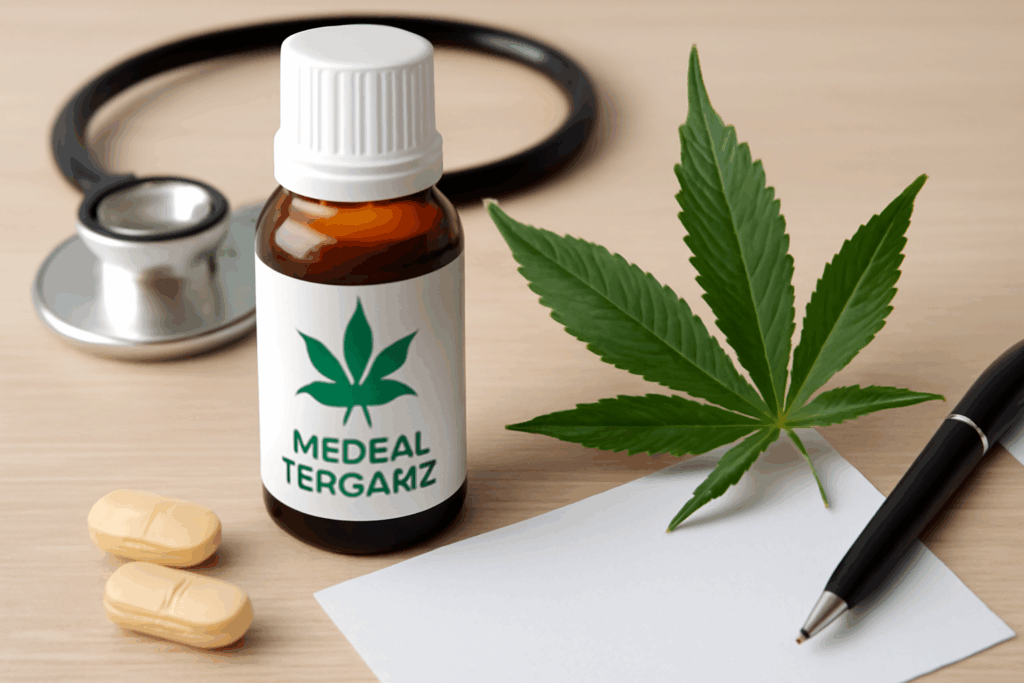Medical cannabis has evolved dramatically in recent years, and 2025 marks a turning point in how it is understood, prescribed, and used. Once surrounded by social stigma and political debate, it is now supported by a growing body of scientific research and accepted as a legitimate therapeutic option. Millions of patients with chronic pain, anxiety, neurological disorders, and inflammatory conditions have found meaningful relief through carefully prescribed cannabis treatments.
But what exactly makes medical cannabis effective? Why are more doctors recommending it? And which benefits are truly backed by science—not hype? This article breaks down how medical cannabis works, its proven advantages, who qualifies, and what patients should realistically expect.
What Is Medical Cannabis?
Medical cannabis refers to regulated cannabis products prescribed by healthcare professionals to treat specific health conditions. These products are formulated with measured levels of cannabinoids—mainly THC (tetrahydrocannabinol) and CBD (cannabidiol)—to ensure consistent therapeutic effects.
Unlike recreational cannabis, medical cannabis focuses on safety, dosage control, and symptom-targeted relief. It comes in various forms, including:
- Oils and tinctures
- Capsules and tablets
- Vaporiser cartridges
- Edibles designed for medical use
- Topical creams and patches
Patients receive customised recommendations based on their diagnosis, symptoms, and overall health profile.
How Medical Cannabis Works Inside the Body
Medical cannabis interacts with the body through the endocannabinoid system (ECS)—a complex cell-signalling network responsible for regulating pain, mood, sleep, appetite, inflammation, and immune responses. The ECS includes two primary receptors:
- CB1 receptors (found mostly in the brain and nervous system)
- CB2 receptors (found throughout the immune system and peripheral tissues)
How cannabinoids work:
- THC binds to both CB1 and CB2 receptors, producing analgesic and anti-nausea effects.
- CBD influences receptors indirectly—reducing inflammation, calming anxiety, and modulating seizures.
- Cannabinoids help restore internal balance when the body’s own endocannabinoids are insufficient.
A 2024 research analysis found that nearly 70% of patients experienced symptom improvement after using prescribed cannabis products for chronic conditions, highlighting how significantly the ECS influences health.
Science-Backed Benefits of Medical Cannabis
Medical cannabis is not a miracle cure, but research shows strong evidence that it can support treatment for a number of conditions. Here are the most widely supported benefits:
1. Chronic Pain Relief
Chronic pain is the most common reason patients seek medical cannabis. Studies show cannabinoids can significantly reduce pain caused by:
- Arthritis
- Fibromyalgia
- Neuropathy
- Back and spine injuries
- Autoimmune disorders
In 2024, a large review of 3,000 patients showed a 30–50% reduction in pain intensity when using consistent cannabis treatment.
2. Reduced Inflammation
CBD, in particular, has powerful anti-inflammatory properties. Patients with conditions like rheumatoid arthritis, Crohn’s disease, and autoimmune disorders often report less swelling, stiffness, and discomfort.
3. Anxiety and PTSD Support
Clinical research shows cannabis—especially CBD—can reduce symptoms of:
- Generalised anxiety
- Social anxiety
- PTSD-related flashbacks and nightmares
Some 2025 patient surveys revealed that over 60% of individuals using CBD-dominant products noticed improved relaxation and sleep quality.
4. Neurological and Seizure Disorders
One of the strongest scientific cases for medical cannabis is in treating epilepsy. CBD-based medications have been proven to reduce seizure frequency, especially in severe childhood conditions like Lennox-Gastaut syndrome.
Patients with multiple sclerosis (MS) also benefit from reduced muscle spasms and improved mobility.
5. Nausea and Appetite Support
THC is known to reduce nausea and vomiting, especially for patients undergoing chemotherapy. It also stimulates appetite, helping individuals struggling with severe weight loss or chronic illness.
6. Improved Sleep Quality
Many patients struggling with insomnia, restless sleep, or nighttime anxiety report better rest with controlled cannabis treatment. CBD helps with relaxation, while small doses of THC may promote deeper sleep cycles.
Risks, Side Effects, and Considerations
Medical cannabis can be highly beneficial, but it is not risk-free. Common side effects include:
- Dry mouth
- Temporary dizziness
- Mild impairment
- Increased appetite
- Fatigue or drowsiness
- Changes in memory or focus
High-THC products can increase anxiety in some individuals, especially at large doses. This is why doctors often recommend starting low and going slow to find the optimal dose.
Long-term heavy use without medical supervision may contribute to dependency or cognitive effects, which is why professional guidance is crucial.
Who Qualifies for Medical Cannabis in 2025?
Qualification criteria vary by country, but most patients eligible for medical cannabis experience conditions such as:
- Chronic or neuropathic pain
- Cancer symptoms
- Anxiety or PTSD
- Epilepsy or seizure disorders
- Multiple sclerosis
- Severe inflammation
- Sleep disorders
- Appetite loss related to chronic illness
Doctors typically recommend medical cannabis when other treatments have not provided sufficient relief or have caused intolerable side effects.

The Medical Evaluation and Approval Process
Most medical cannabis programs follow a structured process:
1. Initial Consultation
A doctor reviews your medical history, symptoms, and previous treatments.
2. Determining Eligibility
The doctor assesses whether cannabis is safe and medically appropriate.
3. Prescription or Medical Cannabis Card
If approved, patients receive legal authorisation to purchase medical products.
4. Selecting Products
Pharmacists or dispensary experts help match patients with suitable cannabinoid ratios and delivery methods.
5. Follow-Up Monitoring
Most programs require check-ins to evaluate progress and adjust dosages.
Legal Considerations in 2025
While medical cannabis is accepted in many places, regulations differ. Common rules include:
- Only licensed dispensaries or pharmacies can supply products
- Driving under the influence is illegal everywhere
- Sharing prescribed cannabis is prohibited
- Travel restrictions may apply across borders
- Age limits must be followed
Patients should always confirm local laws before carrying medical cannabis during travel or relocation.
Methods of Consumption and Available Products
Medical cannabis products in 2025 offer more precision and variety than ever:
- Oils & tinctures for controlled dosing
- Capsules for consistent daily use
- Vaporisers for fast-acting relief
- Edibles for long-lasting effects
- Topical creams for local pain
- Transdermal patches for slow and steady absorption
Choosing the right method depends on your symptoms, lifestyle, and medical advice.
When Medical Cannabis May NOT Be Suitable
Medical cannabis is not appropriate for everyone. It may not be recommended for:
- Pregnant or breastfeeding individuals
- People with a history of psychosis
- Individuals with uncontrolled heart conditions
- Patients taking medications that interact with THC or CBD
- Those who must operate heavy machinery regularly
In some cases, medical cannabis is used cautiously with regular monitoring.
Conclusion
The real benefits of medical cannabis are clearer than ever in 2025. Supported by research, patient experience, and clinician guidance, cannabis can play a powerful role in improving quality of life for those with chronic pain, anxiety, inflammation, and neurological conditions. When used responsibly under medical supervision, it offers a safe, effective, and personalised form of care.
While cannabis isn’t suitable for everyone, the science-backed advantages make it a promising option for many patients seeking relief where traditional treatments may have fallen short.
FAQS
Medical cannabis reduces pain by activating the endocannabinoid system, which regulates how the body processes signals like discomfort and inflammation. Cannabinoids such as THC and CBD help calm nerve activity, relax muscles, and reduce swelling. Many chronic pain patients report less reliance on opioids after starting medically supervised cannabis treatments.
Medical cannabis can be safe long-term when managed by a healthcare professional. Doctors monitor dosage, tolerance, and side effects to avoid dependency or overuse. Most patients experience mild and manageable side effects. However, high-THC use witho
Yes, many patients find relief from anxiety or PTSD through CBD-dominant cannabis products. CBD helps regulate mood, reduce stress hormones, and promote calmness without intoxication. For PTSD, some patients benefit from reduced nightmares and better sleep. The key is using the right dosage and avoiding excessive THC, which may increase anxiety.
The best method depends on the patient’s needs. Oils provide steady relief, edibles last longer, and vaporisers offer fast-acting effects for sudden symptoms. Doctors or pharmacists help recommend the ideal delivery method based on your condition, lifestyle, and desired onset time. Many patients use a combination for different situations.
Medical cannabis may not be suitable for pregnant individuals, people with severe heart disease, those with a history of psychosis, or individuals taking medications with serious interactions. Anyone who must perform safety-sensitive tasks—such as operating heavy machinery—should also use caution. A medical professional can determine whether cannabis is safe for your specific needs.

